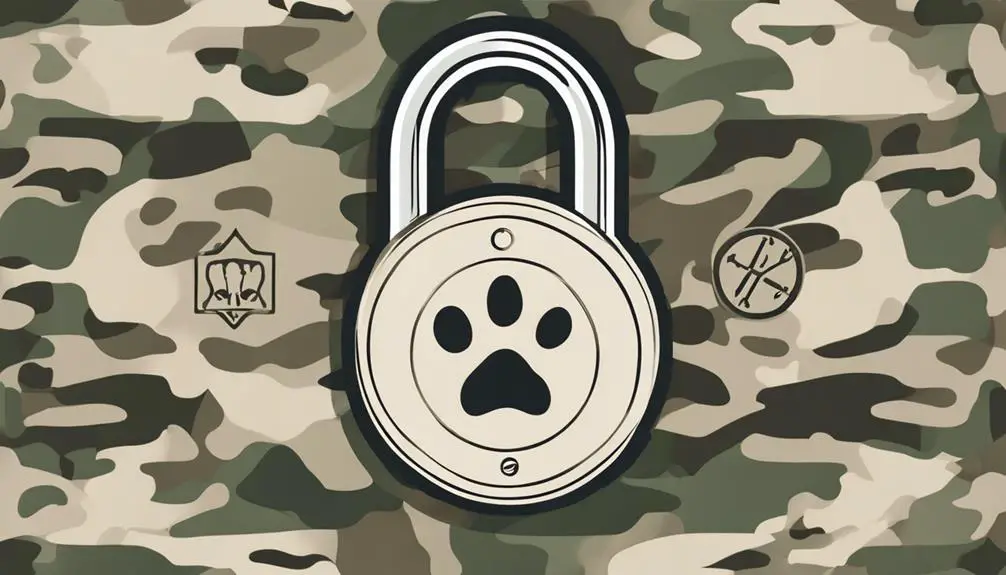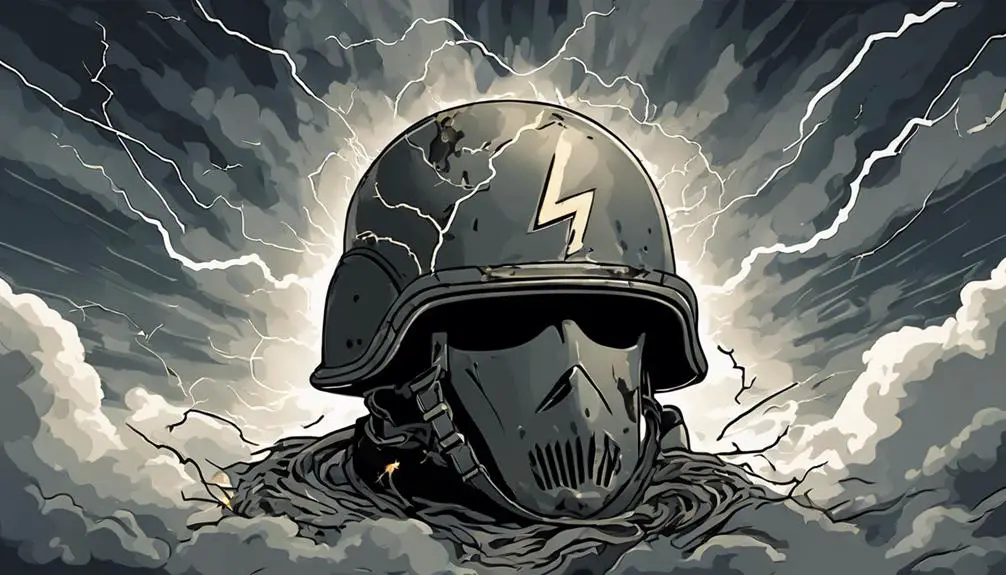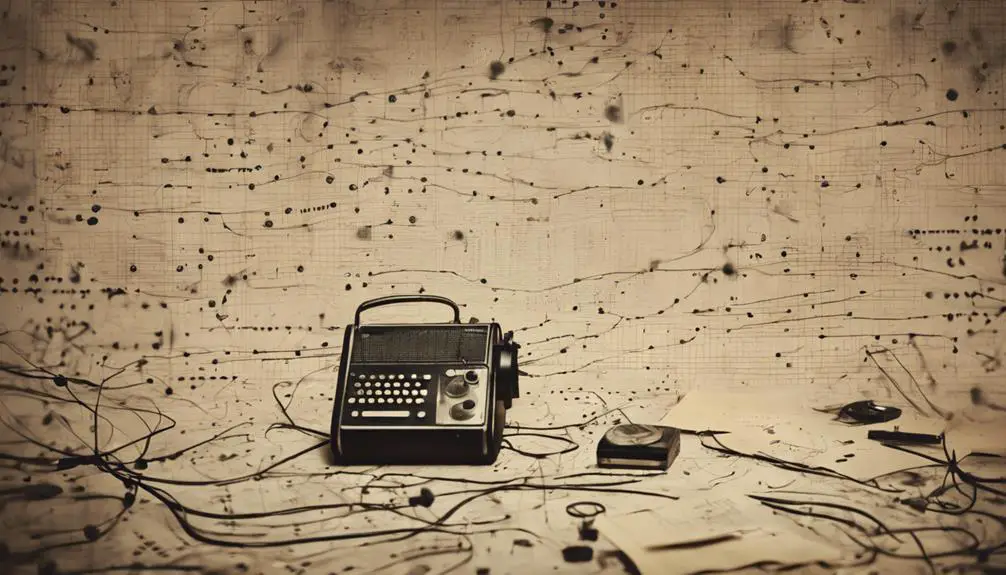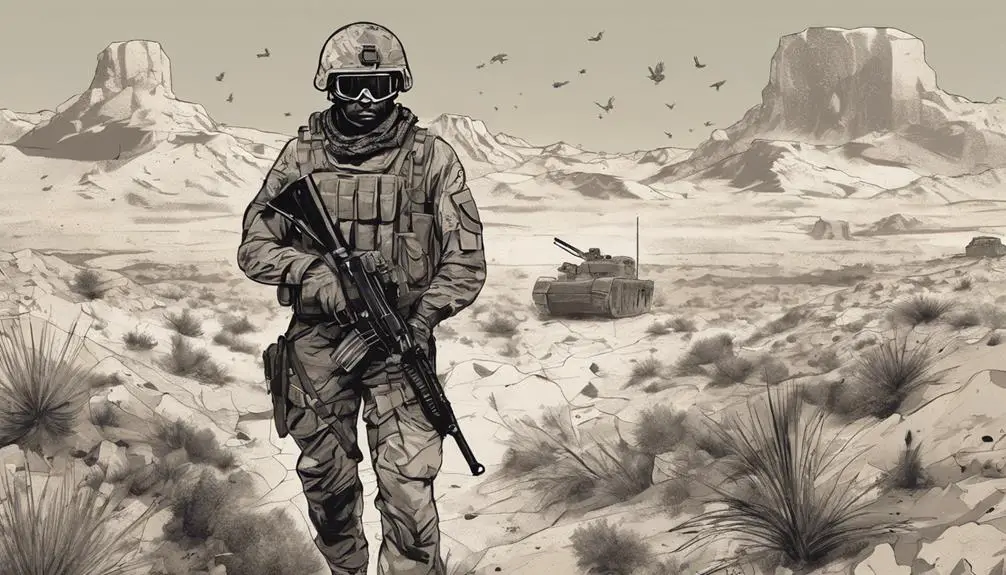You're about to enter a world of cryptic language where 'Bravo Zulu' means 'good job' and 'Oscar Mike' means 'on the move' – the unique domain of military terms and slang. From phonetic alphabets to expressive slang, mastering this lingo is essential for effective communication and cultural integration. You'll discover how military personnel use slang to vent frustration, inject humor, and convey complex ideas. As you explore this world, you'll uncover the nuances of military culture and learn how to navigate its intricacies. Get ready to crack the code and uncover the secrets of military slang.
Decoding Military Lingo Basics

When you're new to the military, deciphering the unique language and slang can be a challenging task, especially for those without prior military experience. One of the primary hurdles is mastering Military Acronyms, which are used extensively in daily communication. You'll encounter abbreviations like 'OIC' (Officer in Charge) or 'NCO' (Non-Commissioned Officer).
Familiarizing yourself with these acronyms will help you comprehend orders, reports, and conversations.
Another essential tool for effective communication is the Phonetic Alphabet. This standardized system helps to clearly pronounce letters and numbers, reducing confusion over radio and phone communications. For instance, the letter 'A' becomes 'Alpha,' 'B' becomes 'Bravo,' and so on.
By utilizing the Phonetic Alphabet, you'll guarantee accurate transmission of critical information.
Mastering these basics will help you navigate the complex world of military communication. As you progress, you'll become more comfortable with the terminology and nuances of military language. By understanding Military Acronyms and the Phonetic Alphabet, you'll be better equipped to succeed in your military career.
Slang for Newbies and Veterans
You'll quickly discover that military slang is a universal language, spoken by new recruits and seasoned veterans alike, with terms like 'HOOAH' (meaning 'yes' or 'agreement') and 'FNG' (short for 'Freaking New Guy'). As you navigate the military culture, you'll find that slang plays a significant role in facilitating cultural integration.
It's a way for newbies to quickly adapt and fit in with their units, while veterans use it to maintain a sense of camaraderie and shared experience. For instance, when a veteran says 'HOOAH,' they're not just expressing agreement, but also signaling their membership in the military community.
Similarly, when an FNG earns the respect of their peers, they're welcomed into the fold with a nod of approval. By embracing military slang, you'll accelerate your integration into the military community, fostering stronger bonds with your comrades and deepening your understanding of the cultural nuances that define military life.
Expressions of Emotion and Frustration

In high-pressure situations, military personnel often rely on expressive slang to vent frustration, convey emotions, and even inject humor into tense moments. You'll hear phrases like 'Freaking out' or 'Losing it' to describe someone on the edge of a breakdown.
When you're feeling overwhelmed, you might say you're 'Running on fumes' or experiencing 'Battle Fatigue,' a state of extreme physical and mental exhaustion. If you're fed up with a situation, you might express 'Raging Frustration' or declare, 'I'm tapped out!' – meaning you're completely drained.
In these moments, slang becomes an essential tool for releasing tension and finding a bit of levity. By using humor and irony, military personnel can momentarily escape the intensity of their surroundings.
Military Slang for Operations
Military operations rely heavily on concise communication, and specialized slang helps facilitate swift understanding among teammates. You'll often hear operations-related slang during mission briefings, planning sessions, and debriefs.
For instance, 'OpSec' (Operational Security) protocols guarantee sensitive information remains classified. Breaching OpSec can compromise the entire operation, so it's essential to maintain confidentiality.
During a mission, you'll likely hear 'SITREP' (Situation Report), which provides an update on the current situation. After the mission, a 'Mission Debrief' is conducted to review what went right, what went wrong, and what can be improved. This debriefing process helps refine tactics and strategies for future operations.
In the heat of the moment, clear communication is crucial. Slang like 'ROE' (Rules of Engagement) and 'AO' (Area of Operations) helps convey critical information quickly. By using these specialized terms, you'll be able to swiftly understand and respond to changing circumstances, ensuring a successful mission outcome.
Code Words and Secret Language

Within the covert world of military communication, code words and secret languages serve as a shield against enemy interception, safeguarding sensitive information and protecting operational integrity. As you explore the domain of military communication, you'll discover that code words and secret languages are crucial components of secure communication. These linguistic tools enable militaries to convey sensitive information without compromising their operations.
Here are three key aspects of code words and secret languages:
- Cipher Systems: These encryption methods use complex algorithms to scramble and unscramble messages, ensuring that only authorized personnel can decipher the communication.
- Encryption Methods: Techniques like frequency hopping and spread spectrum transmission help protect against eavesdropping and interference.
- Secure Communication Networks: These networks utilize advanced encryption protocols and secure key exchange systems to prevent unauthorized access.
Slang That's Unique to Each Branch
As you explore the linguistic nuances of each branch, you'll discover a distinct slang that reflects their unique culture and history. Army insiders, for instance, use terms like 'hooah' to express enthusiasm and 'FOB' to refer to a forward operating base.
Meanwhile, Naval nuances include 'squid' for a sailor and 'deck ape' for a sailor who works on the ship's deck.
In the Air Force, 'flyboy' is a colloquialism for a pilot, while 'wingman' refers to a trusted partner or friend. The Marine Corps has its own slang, with 'oorah' being a battle cry and 'grunt' referring to an infantry Marine.
The Coast Guard, being the smallest branch, has adopted terms like 'coastie' for a Coast Guardsman and 'cutter' for a Coast Guard vessel.
Each branch's slang is a reflection of their unique culture, history, and experiences. Understanding these terms can give you a deeper appreciation for the military's rich linguistic heritage.
Frequently Asked Questions
Are Military Slang Terms Used Universally Across All Countries?
You're wondering if military slang terms are universally used across all countries. The answer is no. Cultural differences and language barriers play a significant role in shaping military slang.
What's common in one country mightn't be understood in another. For instance, the term 'HOOAH' is unique to the US military, while the British Army has its own set of colloquialisms.
This highlights the importance of understanding local dialects and terminologies to guarantee effective communication.
Can Civilians Use Military Slang in Everyday Conversations?
When incorporating military slang into everyday conversations, you're walking a fine line between borrowing a phrase and cultural appropriation. While it may seem harmless, it's crucial to contemplate the social acceptance of adopting language that doesn't belong to you.
Before dropping 'HOOAH' or 'OSINT' into casual chats, ask yourself: are you paying homage or profiting from a culture that isn't yours?
Are There Any Military Slang Terms That Are Now Outdated?
You might be surprised to learn that some slang terms have fallen out of favor over time. As language evolves, certain phrases become Forgotten Phrases, no longer part of our everyday conversation.
Even Evolved Lingo, once popular, can become outdated. This happens when new words and expressions emerge, making older terms seem outdated or irrelevant.
You'll find that many military slang terms, once widely used, have become relics of the past, replaced by newer, more contemporary expressions.
Do Military Slang Terms Vary Based on Military Rank?
You might wonder if the language used by military personnel changes depending on their rank. The answer is yes, it does.
Rank-specific jargon exists, and certain phrases or acronyms are only used within specific ranks or branches.
For instance, Officer-only lingo might be used in high-level meetings, while enlisted personnel may use different terminology.
This variation adds to the complexity of military communication, making it essential to understand the nuances of rank-based language.
Are There Any Military Slang Terms That Are Specific to Certain Wars?
You're wondering if certain wars have their own unique slang. The answer is yes!
Take Vietnam, for instance. The Vietnam Vernacular emerged, with terms like 'grunt' for infantrymen and 'hooch' for living quarters.
Fast-forward to the Gulf War, where 'Gulf Jargon' was born, with phrases like 'scud' for Iraqi missiles and 'sandstorm' for, well, massive dust storms.
Each conflict seems to spawn its own linguistic culture, reflecting the experiences and challenges of those who fought.
Conclusion
You've deciphered the code, maneuvering through the complex world of military slang like a pro! Now, you can decode phrases like a seasoned veteran, from 'HOOAH' to 'FOB.'
Remember, military lingo is like a puzzle – once you have the pieces, the bigger picture comes into focus. As you continue to learn and adapt, you'll be 'squared away' in no time, speaking like a true military insider.







